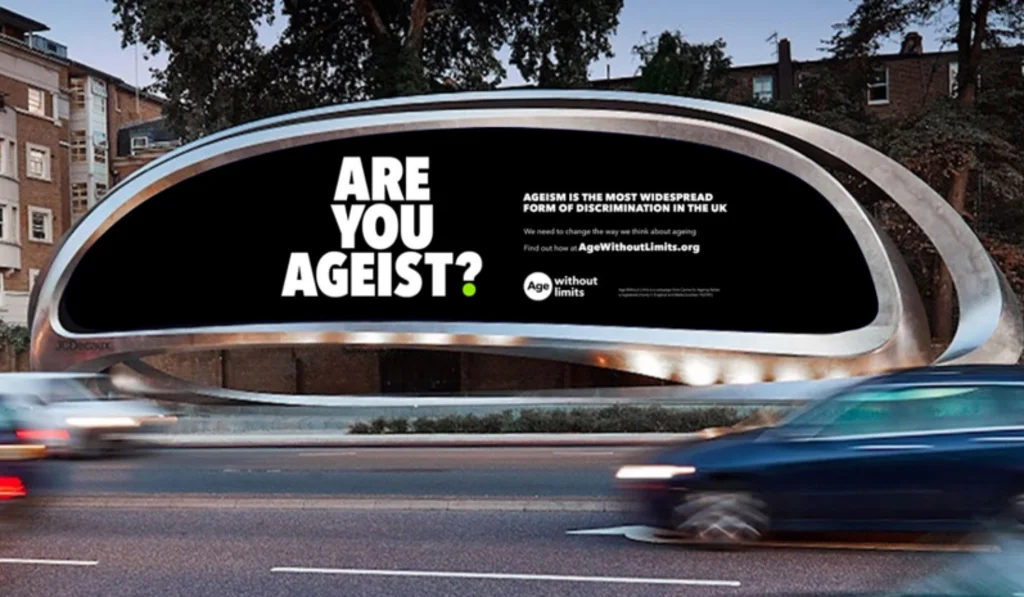Ageism is when we are treated negatively just because of our age. And if we’re over 50, there’s a 1 in 2 chance this will affect us. It’s so ingrained we barely notice it, but it affects all the building blocks of our lives, from our jobs and healthcare, to our housing, relationships and opportunities. Ageism limits us all, whatever our age.
That’s why the Centre for Ageing Better decided to act and launched an evidence-based three-year programme with ambitious goals to shift ageist attitudes and behaviour across the population. With such a hidden and stigmatised issue, we needed to be bold. So we launched our first mass-reach advertising campaign with a hard-hitting question: ‘Are You Ageist?’.

For the rest of the year, we kept awareness of ageism high and brought people together to challenge it. We hosted our first national Age Without Limits Day, drew attention to gendered experiences of ageism with a survey and panel discussion, ran a mini-campaign about ageism in the media and worked with various industry leaders on representations of ageing, commissioned research to ascertain the effects of ageism on people over 50, and featured a growing number of our supporters’ stories on our channels. We also worked to keep ageism and the importance of age-inclusivity on the national agenda through our media and digital work throughout the year.
We achieved a lot:
- 24% of adults saw at least one element of the ‘Are You Ageist?’ advertising campaign. That's around 10 million people!
- Almost three quarters of those who recognised the advertising campaign had taken action; most commonly to speak to friends and family about ageism
- Over 60 groups and communities hosted events across the country to mark our first ever Age Without Limits Day
- There were 463 mentions of Age Without Limits in the media
- There were 15,668 downloads of our free, age-positive image library pictures of people aged 50+
- Our online audience grew to 11,000 people!
“Salience around ageism is increasing, resulting in more people thinking about ageism who hadn’t previously done so. People who have seen our activities throughout 2024 have reflected and asked themselves if they have ageist attitudes. Many have also taken some kind of action, most notably speaking about the topic with friends and family, becoming an Age Without Limits supporter or getting involved in our Age Without Limits Day. Those green shoots build towards our overarching three-year objectives.”
Our evaluation showed that more people were hearing lots about ageism, rating their understanding of ageism as ‘very good’, and thinking about ageism than ever before. It’s clear that awareness of ageism is growing and together we can create a future where everyone can age without limits.
Download the 2024 Age Without Limits Impact Report in full here.
To find out how you can challenge ageism in your own everyday life, community or workplace, please visit our website, sign up to our newsletter, or follow us on social media.